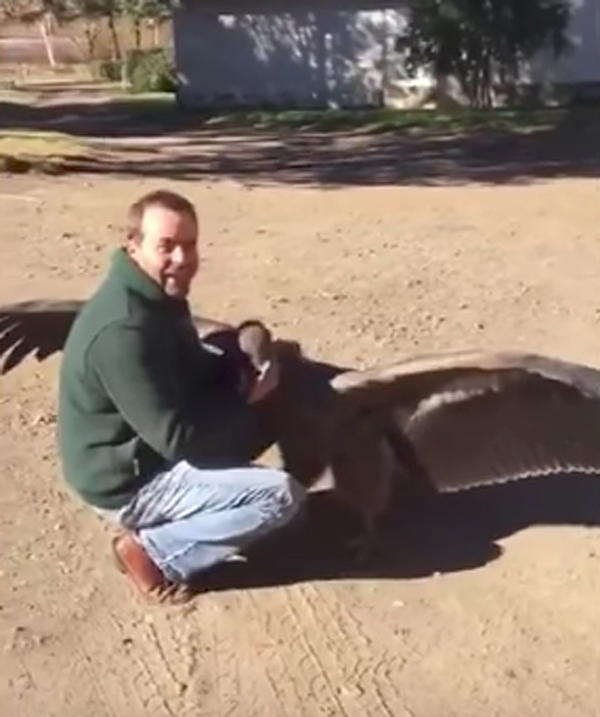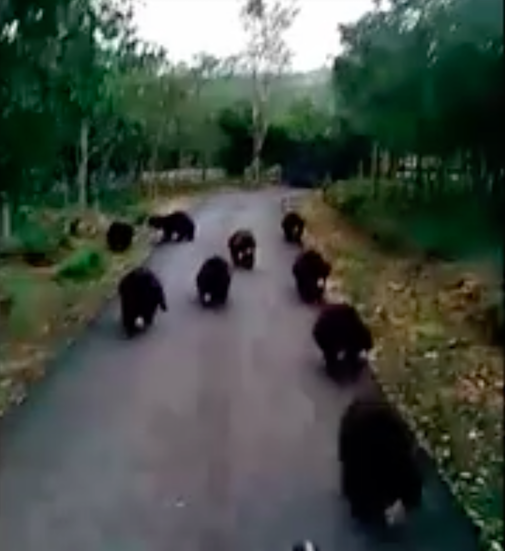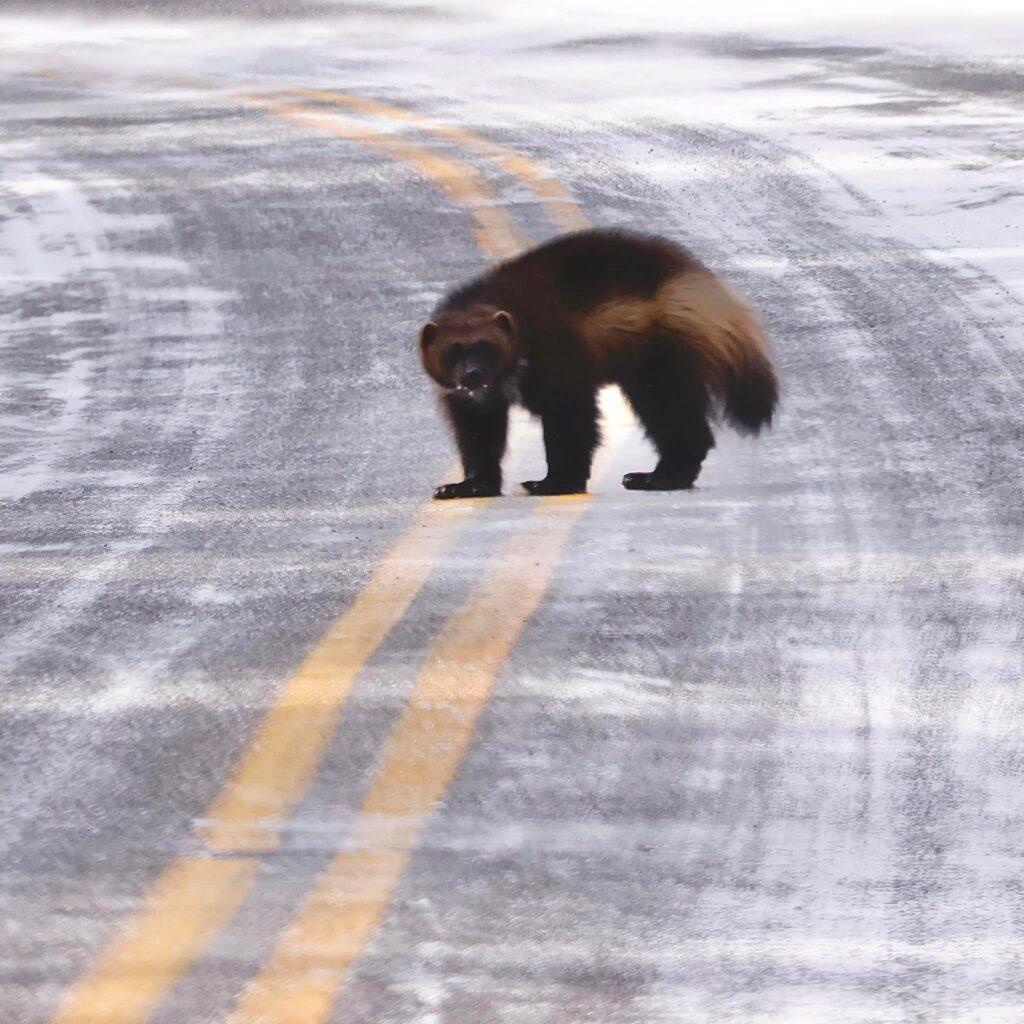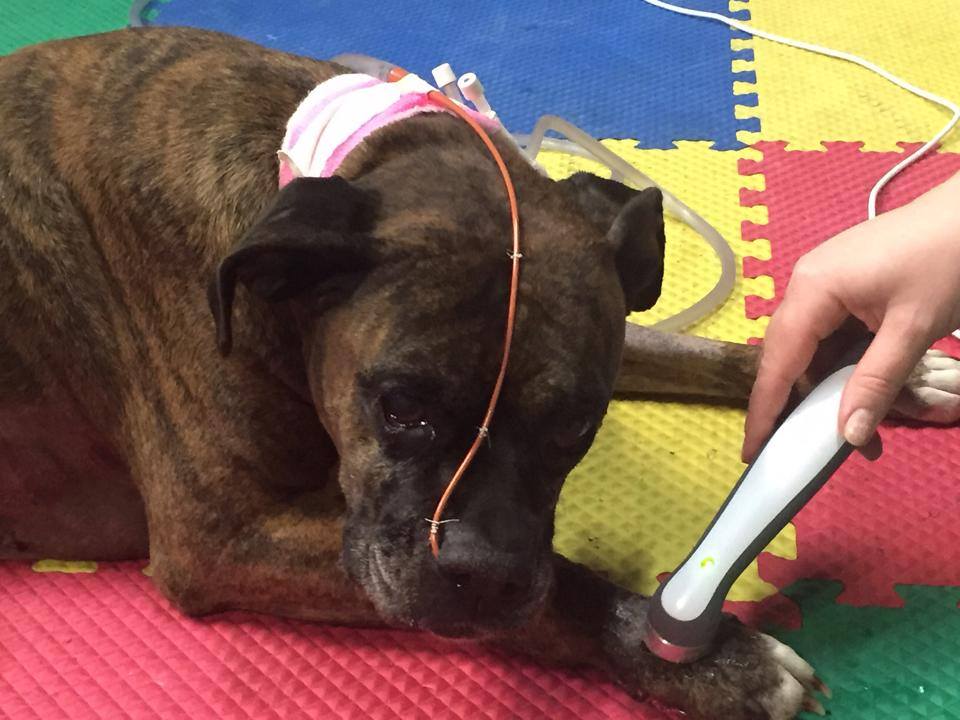This video has been seen around the world leaving many to wonder whether it’s true that a wild bird can show affection for the human who saved his life.
When the condor was born, he fell from the nest. People from a nearby farm took the baby bird in.
After the baby bird was able to survive on his own, he was set free. But the grown bird now returns occasionally to salute his rescuer.
In the video which was first posted on the organization Breathing with Peace’s Facebook page, the condor descends from the sky and with its open wings goes to the man to ‘greet’ him.
Eduardo, who saved the bird’s life, greets the condor.
“Hi it has been a while, how are you. Did you come to say hello to me? Eduardo says in the clip.
According to the media in that area, ‘Condorito’ as they know it was cared by the man when the bird fell from the nest in Neuquén, Argentina.
After recovery, Condorito was returned to its natural habitat in order to integrate it into nature. Without forgetting the man, the animal always visits his rescuer in gratitude.
In a column posted on NPR, Barbara J. King, an anthropology professor emerita at the College of William and Mary. who writes about the cognition, emotion and welfare of animals, and about biological anthropology, human evolution and gender issues, discusses whether the bird’s behaviour was normal.
Condors are vultures, a type of raptor. As it happens, just a week ago I spent a fantastic afternoon observing the rescued raptors and interacting with environmental educators at the Vermont Institute of Nature Science in Quechee.
I sent the condor video clip to VINS environmental educator Anna Autilio, who had shown me around last week (she is also a friend). I remarked to her by email that I didn’t think the behavior shown by the condor was the result of imprinting, because the bird had left the man for the wild; I asked if she thinks that gratitude could be a possible explanation for the condor’s behavior.
Autilio replied:
“The big thing is, I don’t see why we would rule out imprinting. According to the description in the video, this man rescued the bird when it was ‘a baby.’ Does the condor now breed, that is, have a condor mate and raise condor chicks? Or does the ‘frequent’ visitation imply that this bird has taken Edgardo as its mate and will remain in the general vicinity hoping one day Edgardo will lay an egg? Is it unable to recognize other condors as mates because it was raised by a person? That would be the sad part.
The condor is definitely soliciting neck rubs. In the wild, this would be allo-preening between mates, a ritual done after mating, as a greeting, or during a changing-of-the-guard at incubation. You can even see the condor nibbling Edgardo’s shirt and hands as he may be trying to reciprocate the neck rub, or demand more.
Gratitude is not a word I would use — it implies the condor knows Edgardo was responsible for its healing. But does the condor feel extreme affection for Edgardo? Yes!”
(I learned my lesson some time ago in always seeking a bird expert when trying to interpret bird behavior.)
What we’re left with, then, is a clear indication of emotion felt by the condor, but too many unanswered questions to point toward gratitude.
The condor video is only the tip of the animal-gratitude iceberg. Media stories of the “rescued whale says thank you” variety are pretty common, including this famous one from back in 2005 in which rescuers disentangled a humpback whale from crab pot lines in the waters off California.
Based on what I know of cetaceans, elephants, and non-human primates, I believe this capacity probably does exist in individuals of some species whose survival depends on being able to make complex learned associations or, in some cases, to take the perspective of others.




